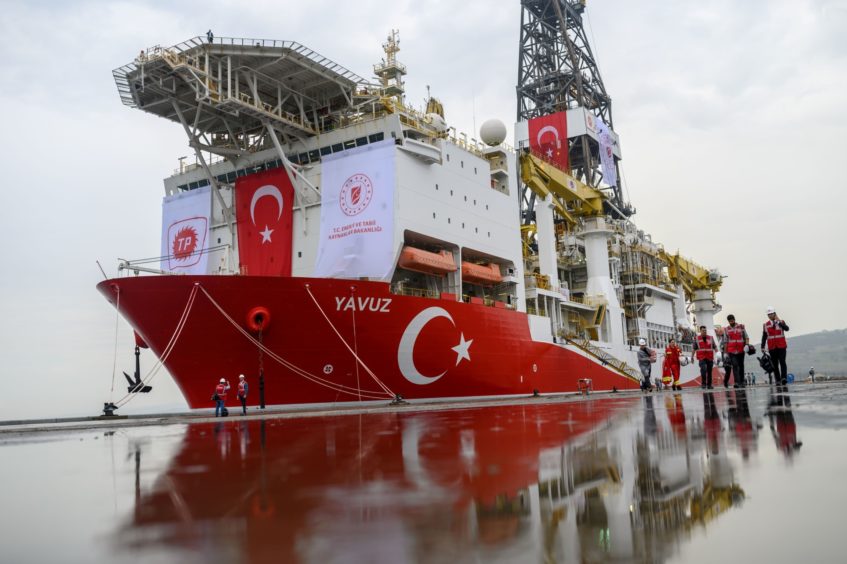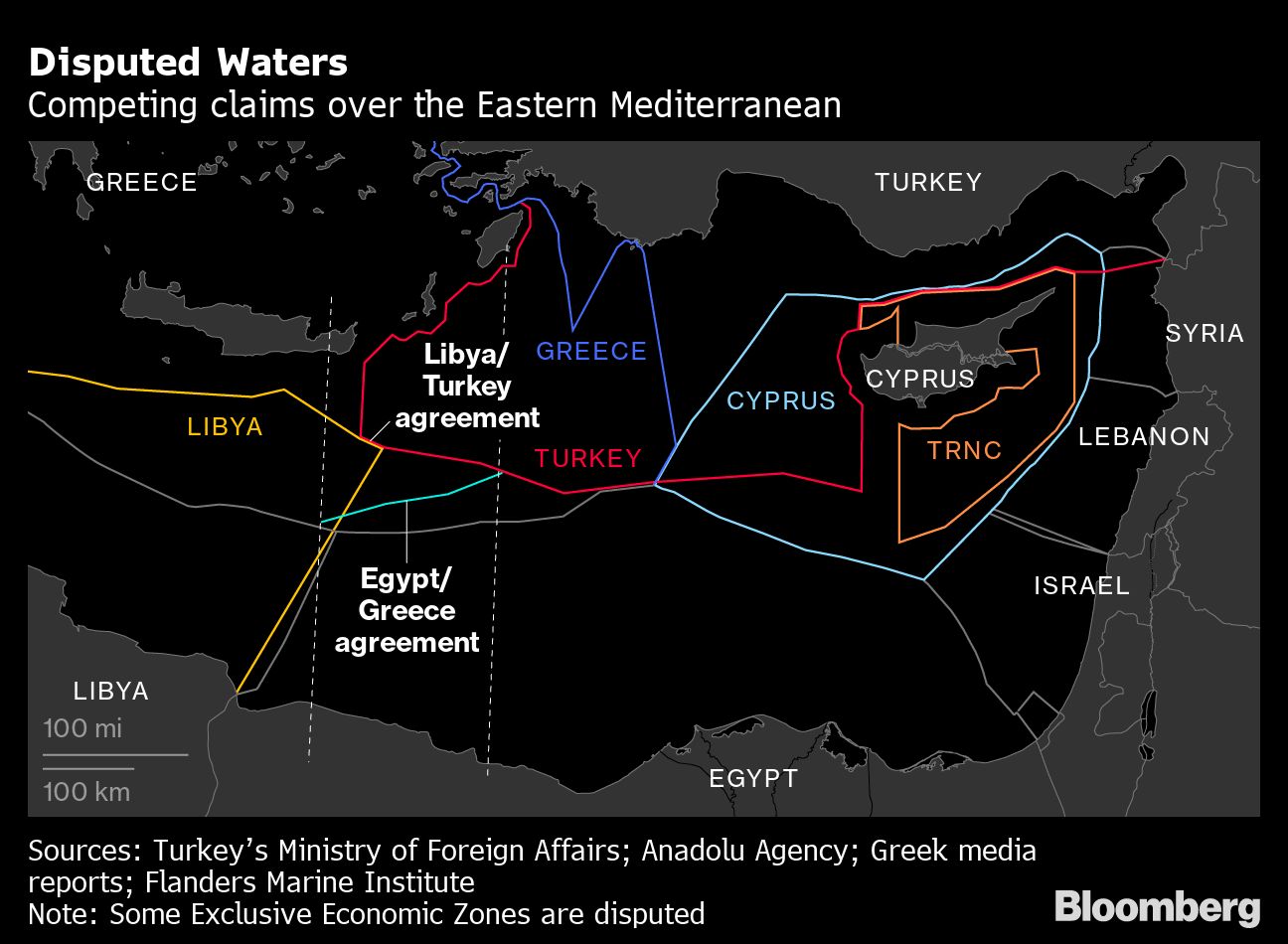
European Union foreign-policy chief Josep Borrell said EU relations with Turkey are at a crossroads as the bloc presses Ankara to halt controversial energy exploration in the eastern Mediterranean.
The EU fully supports Greece and Cyprus in their dispute with Turkey over its natural-gas hunt in waters claimed by both member countries, Borrell said. Turkish de-escalation is needed to avert a tougher EU reaction, including possible sanctions when the bloc’s leaders meet on Sept. 24-25, he signaled.
“This is a watershed moment,” Borrell told the European Parliament on Tuesday in Brussels. “The ball will go to one side or the other, depending what’s going to happen in the next days.”
Strains between Turkey and Greece over contested territorial waters worsened over the summer following similar Turkish tensions with Cyprus. The Turkish-Greek dispute has sparked concerns about a military confrontation between two North Atlantic Treaty Organization members and prompted a German-led diplomatic push for a resolution.
“We have to find a political solution,” Michael Roth, a German deputy foreign minister, told the EU Parliament. “There can be no military solution to this conflict.”

Recently, Turkey decided to remove a survey ship from contested waters with Greece. Borrell on Tuesday called the Turkish move “a step in the right direction” and said it provides “hope that it will lead to further steps toward dialog.” Greek Prime Minister Kyriakos Mitsotakis also welcomed the Turkish move.
“Turkey still has time before and after September’s EU summit to continue its first encouraging step,” Mitsotakis said after holding a meeting in Athens on Tuesday with Charles Michel, who chairs gatherings of the 27-nation bloc’s leaders. “We are ready to immediately start exploratory contacts with Turkey” if de-escalation continues.
In a largely symbolic act in February, the EU imposed asset freezes and travel bans on two employees of Turkish Petroleum Corp. in response to Turkey’s energy exploration off Cyprus. Greece and Cyprus have been pressing their EU partners to draw up tougher penalties in the run-up to the bloc’s summit next week.
Greece says that islands must be taken into account in delineating a country’s continental shelf, in line with the United Nations Law of the Sea, which Turkey has not signed. Ankara argues that a country’s continental shelf should be measured from its mainland and that the area south of the Greek island of Kastellorizo — just a few kilometers off Turkey’s southern coast — therefore falls within its exclusive zone.
The EU Parliament this week is drawing up a non-binding resolution on Turkey and, during Tuesday’s debate, many members of the 705-seat assembly lashed out at the Turkish government for its actions in the eastern Mediterranean.
“We condemn the Turkish drilling activities in the exclusive economic zones of Greece and Cyprus and we consider them illegal,” said David McAllister, German chair of the EU Parliament’s foreign-affairs committee. “The option of additional sanctions against Turkey must be openly discussed in the light of continued Turkish aggression.”